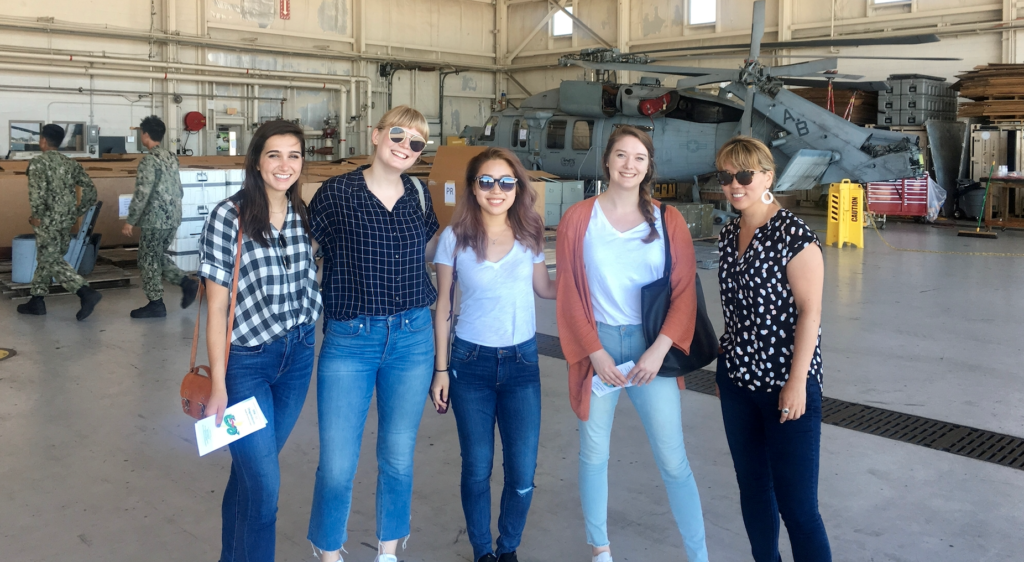
Michelle Kae is a Research Associate at the Stimson Center and the Producer of “38 North,” a web journal that provides policy and technical analysis on North Korea.
Why do you work at Stimson?
I think everyone at Stimson is driven by a shared mission to leave the world a better place than they found it. That has cultivated a very strong sense of comradery and teamwork, and has built a community of some pretty spectacular people who are trying to build and apply their expertise. We all work on different issues, but we’re all driven by the same deep curiosity and a shared hope to make the world better and more secure. I always feel like I’m learning something new about the work my colleagues do and it is even more exciting when we can find opportunities to collaborate. I love working in that environment.
What was the catalyst for your interest in international security?
I’ve had a longstanding interest in international affairs, which was informed by my personal experiences growing up in the suburbs of Maryland and spending summers every couple of years in South Korea. My family’s trajectory to the United States is a consequence of the Korean War. Living in and navigating multiple cultures growing up, as well as seeing how quickly South Korea changed and hearing narratives about North Korea discussed in my family has always made me keenly aware of what was going on in that region.
Because of that, I’ve always had an interest in the intersection of culture, psychology, and politics. I’m thinking more broadly how we all understand the world and how that then informs, creates, and shapes society. So much of the international affairs field is cultural psychology – understanding how states act and why, which is critical in trying to decide how to conduct affairs. Threat perceptions and policy options can look drastically different when you have a better understanding of an adversary’s perspectives.
What is something you wish people understood about your work?
There are perceptions that our team has its own satellites and specific intel. But everything we do is open source. I think people are often amused when they see TV interviews with Jenny Town and our team, because they see behind the scenes that it’s a bunch of young women in front of computers rather than a command and control center with dozens of monitors and satellites. We would need more funding for that!
The most visible part of our work is the satellite imagery analyses, and it can be hard to be definitive when you are looking at blobs or a couple of pixels. We always try to be very careful in our analysis, which can be frustrating because people naturally look for certainty. Our analysts have decades of experience in photo interpretation, yet are rarely certain of what they are observing given the limitations of imagery resolution and availability. But they can provide a range of options of what they are seeing and why, with varying levels of confidence. We also try to align those possible explanations with other contextual factors about what is going on in North Korea.
People often get frustrated at the lack of certainty, but it comes with the territory. It’s frustrating for us when that uncertainty or range of possibilities is not reported correctly, with media at times reporting the more likely explanation without including the proper hedging. When dealing with a topic as sensitive as North Korea’s nuclear program, for instance, that hedging is both intentional and important.
What do you wish people understood about North Korea?
I regularly have to explain that North Korea is not a monolith or a secret, unknowable state. It’s fundamentally important that North Korea is recognized as more than its nuclear ambitions or its authoritarian leadership. It’s actually a dynamic country witnessing its own social, economic, and political changes within. It has its own interests and its own strategy. Kim Jong Un has his own vision for the country and has demonstrated that he is not his father or his grandfather. I think there has to be more nuance than that. Our work is to provide original research and analysis, and to facilitate discussions on the topic of North Korea and treat it as a real country instead of a caricature.
North Korea is often underestimated. While it is subject to a heavy sanctions regime, North Korea has proven to be masterful at adapting, successfully acquiring hundreds of millions of dollars through sophisticated sanctions evasions techniques which they continue to refine.
Despite efforts to isolate North Korea for their rogue nuclear weapons program, the country is by no means completely disconnected from the rest of the world. North Korea has sent academics to Canada for educational exchange, culinary students to Italy, and college students to international programming and math competitions (who perform quite well).
The political timeline in North Korea also operates much differently than in the US. Because it is not a democracy, we don’t see the high turnover or rotations of political and diplomatic positions that tend to occur when an administration changes. For instance, a North Korean official assigned to work in the North America bureau at the Ministry of Foreign Affairs will likely focus on that portfolio through most of their career. This facilitates a level of expertise, experience, and institutional memory among the team working on US affairs that their American counterparts do not possess on North Korea. We might not always understand or agree with the decisions North Korea makes, but that doesn’t mean it doesn’t know what it’s doing.
In the US, there continues to be very little political appetite to have real, sustained engagement with North Korea. However, the last few decades have shown that we need to seriously engage with them, and that time is not on our side.
What are the future trends in your field?
Right now we are seeing an increase in the accessibility of data. Commercial satellite imaging companies, some of which we work with, are sending out more small satellites to increase revisit rates, meaning one company could capture an area of interest multiple times a day. Just a few years ago we used to get one image of a target every couple of weeks—sometimes even months—and now we have the option of analyzing a site with varying resolution quality multiple times on a near-daily basis.
Also, there has been huge surge of interest in North Korea. The analytical community has grown, and with it more open-source intelligence, research methods, and tools being employed to learn about the country in real time. That rapid increase in information comes with varying levels of quality and perspectives. Our program wants to remain very careful about our analysis. We try to bring quality control and context to a wealth of data that is often decontextualized. In the future we hope to build more resources on 38 North that will look at a variety of issues from a bird’s-eye view (kind of like satellites), which will help people better understand the context within which they’re working.
Follow Michelle on Twitter @michellekae_ and learn more about 38 North.



